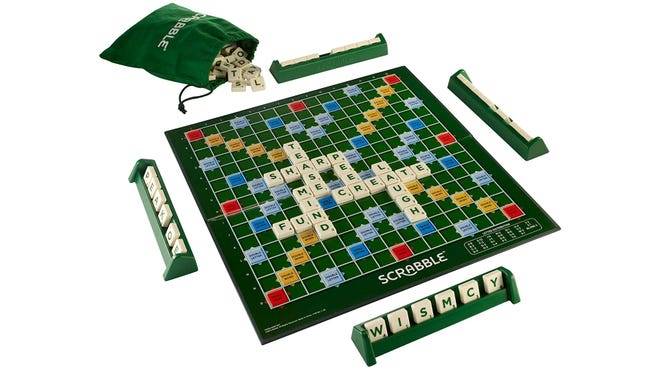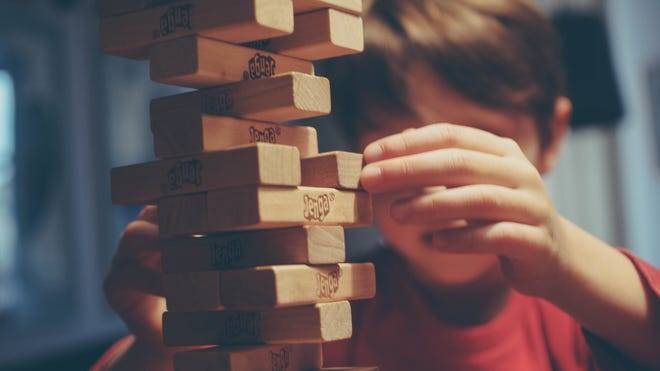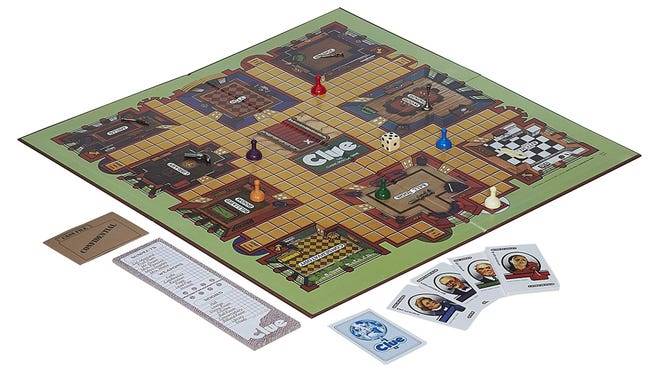

1. ScrabbleAre you sure that's a real word?

The inspiration behind a wide range of word games ranging from Boggle to Words with Friends, Scrabble was first released in 1938 and became a global phenomenon. Two to four players effectively construct their own crossword puzzles on the board's grid using a set of randomly drawn tiles, building on the words others have already placed.
Scoring is based on the letters used in the word, with more obscure ones such as X and Z worth significantly more than vowels or common consonants like S and N.
Ideally you also want to strategically place your high-scoring letters and words so that you can capitalise on the tiles that will double or triple the point values. You just need to watch out for the possibility that another player will tack an S onto your big score and also claim the points.
Scrabble obviously puts your vocabulary to the test and you have to watch out for spelling errors or made-up words. Other players can challenge what you've laid down and you'll lose your turn if you were in the wrong. You should be pretty confident before you call someone out because you'll lose your next turn if their play was correct.
2. JengaCarefully move blocks without toppling the whole tower

A tense game of manual dexterity and physics, Jenga is a staple in family living rooms and bars. The concept is both simple and challenging enough that almost any age can enjoy it. Players take turns extracting a wooden block from a tower and then placing it horizontally on the top layer. As more blocks are extracted from the stable bottom layers, the tower becomes increasingly precarious.
The first few turns are usually pretty easy, with players jiggling loose blocks from the sides and easily placing them on top.
But eventually those simple plays are all taken and then bolder strategies are required, like gently pushing through centre blocks. You're allowed to tap a block to see how much give it has before committing to move it, but any contact with the tower runs the risk of toppling it over and dramatically ending the game.
The ratcheting tension inherent in the game made Jenga an ideal core mechanic for the horror RPG Dread, where challenges are resolved by moving blocks meaning everything the players do inherently becomes riskier as the game goes on. Oversized versions of Jenga are also a hit at parties, where the instability added by having a few drinks creates a whole new challenge.
3. CluedoExplore a mansion trying to solve a murder

Cluedo, or Clue as it's called in the US, established the genre of detective board games when it was released in the UK in 1949. Inspired by murder-mystery dinner parties and the works of Agatha Christie, the classic board game has players take on the role of people holed up in a mansion trying to figure out who the killer is, where the crime was committed and what weapon was used.
The solution to the mystery is randomly determined and hidden at the start of the game and the rest of the clues are randomly doled out to the players.
As you move about the board, navigating posh confines like the billiard room and ballroom, you can throw out guesses about the crime and other players have to reveal evidence to prove you're wrong.
Note-taking is encouraged to keep track of all the evidence you've seen or can guess at based on suspicions that were voiced and then dismissed. Once you're really confident in your logic, you can actually accuse a suspect and consult the hidden cards to see if you were right. While the mechanics are pretty simple compared to modern versions of the genre, Cluedo is a quick and flavourful game perfect for a family night.
You can also pair it with the hilarious 1985 film adaptation, which has three different possible endings.
Does this sound interesting to you? Then head over to our other page to learn how to play Cluedo.
